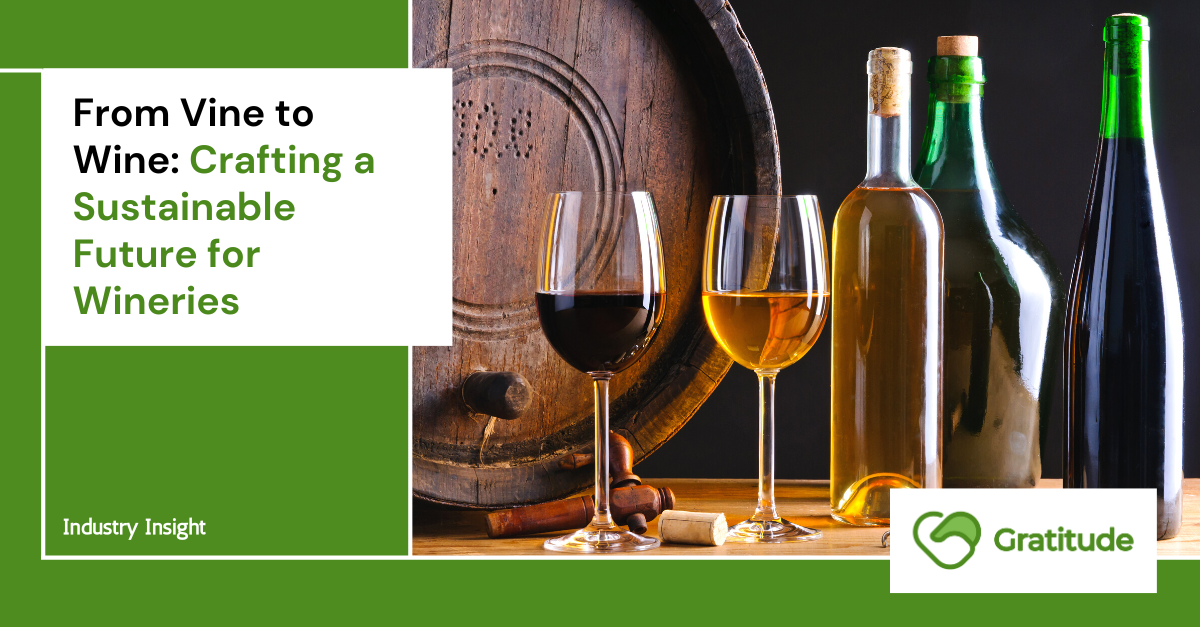Wineries around the globe are increasingly acknowledging the imperative of adopting sustainable practices not only to minimize their environmental footprint but also to ensure the long-term viability of their operations. Below are some measures that wineries can take to transition towards more sustainable and eco-friendly operations:
1. Viticulture and Viniculture:
- Water Efficiency: Adopting water conservation techniques like dry farming, which relies on natural rainfall rather than irrigation, can significantly reduce water usage in vineyards. This practice is already common in regions like France and Oregon, where it’s believed to result in higher quality wines.
- Soil Health & Fertilization: Ensuring soil health through organic fertilization practices and cover cropping can enhance soil fertility and reduce dependency on synthetic fertilizers.
- Pest Management: Integrated Pest Management (IPM) practices can help in managing pest issues with minimal use of harmful pesticides.
2. Energy Efficiency:
Wineries can reduce their energy consumption by investing in energy-efficient technologies and renewable energy sources like solar or wind energy.
3. Waste and Wastewater Management:
Implementing robust recycling and composting programs, and treating wastewater for reuse can significantly reduce the winery’s waste output.
4. Transportation:
Reducing the carbon footprint associated with transporting wine can be achieved by optimizing delivery routes, and considering alternative, lower-emission transportation options.
5. Packaging and Material Sourcing:
Opting for lightweight, recycled, or recyclable packaging materials can reduce the environmental impact and costs associated with packaging.
6. Certification and Consumer Education:
Achieving certifications like organic or biodynamic certifications, and educating consumers on the environmental benefits of such practices can also contribute to a winery’s sustainability profile.
7. Digital Compliance and Consumer Information:
Employing digital solutions like Siplabel can help wineries comply with regulatory requirements efficiently. Siplabel facilitates EU wine labeling regulation compliance by generating QR codes that provide nutritional information to consumers without compromising label aesthetics. This not only helps wineries adhere to sustainability principles by minimizing paper usage but also caters to modern consumers who are increasingly concerned about the products they purchase.
Transitioning towards more sustainable practices might initially require a substantial commitment in terms of time and resources. However, the long-term benefits include reduced operational costs, enhanced brand reputation, and a more loyal customer base, which can significantly outweigh the initial investments. Adopting digital solutions like Siplabel can be a step towards integrating modern technology to ensure compliance, improve operational efficiency, and communicate sustainability efforts to consumers, aligning with the broader goal of environmental responsibility in the winery sector.
Are your wine business looking for a platform to narrate your wine’s story, EU compliance, and become more transparent in the future? Talk to our representative for FREE at :
Website : https://siplabel.com
Twitter : https://www.twitter.com/more_gratitude
Linkedin : https://www.linkedin.com/company/more-gratitude
Instagram : https://www.instagram.com/more_gratitude/
Facebook : https://www.facebook.com/followgratitude
Medium : https://www.medium.com/@more_gratitude
Sign up to our exclusive newsletter for special offers and latest industry insight :

